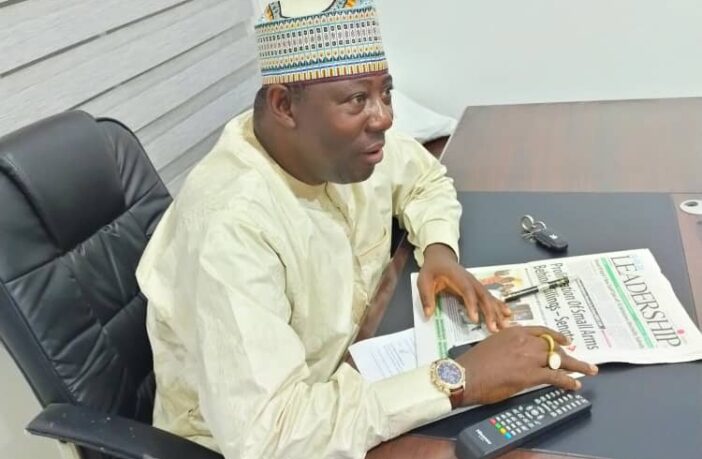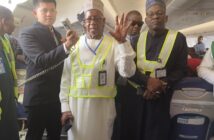There’s a time-tested believe in the indispensable role of statesmen in building a peaceful and virile society. This is because they combine the role of societal moral shock absorber and rallying point for excellence.
Examples abound from Mansa Musa, who was the 9th Mansa of the Mali Empire, which reached its territorial peak during his reign. Musa is known for his wealth and gift-giving, and has sometimes been called one of the wealthiest people in history. The Kangxi Emperor (Xuanye; 4 May 1654 – 20 December 1722) was the third Emperor of the Qing dynasty, and the second Qing emperor to rule over China proper, reigning from 1661 to 1722. The emperor of Japan is the monarch and the head of the Imperial Family of Japan.
MAll the aforementioned played pivotal roles in shaping the progress of their societies at one time or the other. These statesmen are the rallying point in peace building and in times of challenges.
The same cannot be said of Nigeria. The Nigerian paradox is that the same statesmen who should serve as the moral fibre of the society are busy stoking and fanning the embers of discord.
For instance, some respected members of the ruling class are reportedly being quoted to have said that Igbo youths are spread all over the country, and that if they decide to take up arms, Nigeria is finished. Should this kind of talk emanate from supposed statesmen instead of preaching peace and tolerance? Why can’t Nigerian elites behave like their counterparts elsewhere who instead of trading blames and stoking fire would proffer solutions to societal problems?
The administration of President Muhammadu Buhari has been on its toes since assumption of office in 2015, embarking on sensitive projects that will address the issue of marginalisation. For instance, the N200 billion Second Niger Bridge, comprising the main bridge across the River Niger and 10km of a six-lane expressway in Onitsha and Asaba, scheduled for completion this year are part of deliberate steps by Buhari to promote inclusion.
It would be recalled that the bridge had been on the drawing board for many decades. Let it be on record that there has never been any administration since the return to democracy in 1999 that has promoted ethnic harmony like the Buhari administration. His frequent visits to South East states bear eloquent testimony to what he believes about Nigeria’s oneness.
Leaders must watch their public utterance as it is capable of igniting fire. I stand to be corrected that the same way Igbos are in other parts of the country, so Yorubas and Hausa or Fulanis and other tribes are living in various regions of the country. For statesmen to descend so low as to make such utterance is unfortunate.
In the area of insecurity, the National Security Adviser (NSA), Mohammed Babagana Monguno (rtd) is actively coordinating security agencies in counter insurgency operations. This is paying off. Lately, we have achieved tremendous peace. Thanks to the activities of the NSA. The least leaders in other spheres can do is not to distract them but lend their support.
Similarly, the Inspector General of Police (IGP), Usman Alkali Baba, and the Director General of the Department of State Service, Yusuf Bichi Magaji, are doing extremely well to susty internal security and order. Together with their Commander-in-chief, President Buhari, the NSA, the DG DSS, the IGP and other heads of security agencies are doing a great job for national interest and unity; hence, it is regrettable for anyone or group of people to sabotage government’s efforts.
There is no basis for reckless statements in the first place because the Buhari-led government is not marginalising the Igbos. Regarding the Igbo presidency, Buhari has no right or power to handpick anybody as the president of Nigeria. It is a democratic process that he cannot decide. The people of the South East understands this very well, that getting the presidency depends on political participation.
Suffice it to point out that no administration since 1999 has favoured the Igbo nation like the Buhari government in terms of infrastructures. Under this administration, 60 verifiable projects across the five states of the South East are been executed, while some are at various stages of completion.
An overview of the projects includes the construction of Ihiala-Orlu Road in Isseke Town-Amafuo-Ulli with Spur (Ihiala-Orlu-Umuduru Section) in Anambra and the construction of Oseakwa Bridge in Anambra.
Other projects are the Anambra/Imo Border-Ibinta-Okigwe Road; the rehabilitation of Abakaliki-Afikpo Road Sections I and II in Ebonyi. The rehabilitation of sections 1 to 4 of the Enugu-Port Harcourt Expressway and the rehabilitation of Oba-Nnewi-Okigwe Road Route Section II.
There is also the rehabilitation of Old Enugu-Port Harcourt Road (Agbogugu-Abia Border Spur to Mmaku); rehabilitation of Nsukka-Obollo-Ikem-Ehamufu-Nkalagu Road in Enugu; rehabilitation of Owerri-Umuahia Road Sections I, II & III Imo/Abia and rehabilitation of Oba-Nnewi-Okigwe Road.
There is also the rehabilitation of section II: Anambra/Imo States Border-Ibinta-Okigwe Road; rehabilitation of Bende-Arochukwu-Ohafia Road Section I in Abia, reconstruction of the Runway of the Akanu Ibiam International Airport, Enugu, following President Buhari’s approval of a N10 billion special intervention fund in 2019.
Also, under President Buhari’s Executive Order 7 (the Road Infrastructure Tax Credit Scheme) signed in 2019, MTN Nigeria has recently announced its intention to reconstruct the Enugu-Onitsha Expressway. The MTN Board has approved the company’s participation in the scheme.
The N362.5 billion raised in Sovereign Sukuk Bonds since 2017 has been shared equally across the six geopolitical zones – which means that a little over N60 billion has been allocated to the South East.
Against the backdrop of the foregoing, it is sad to imagine all the deliberate falehood and mishief. How can it be alleged that the Igbo nation is being marginalised? Statesmen should learn to preach peace, instead of stoking hatred and disunity because in the final analysis, if Nigeria implodes, they too will not be spared.
As leaders of society who the citizens look up to to lead by example, if they have such sensitive intelligence information, the doors of the national security agencies are open. The NSA IGP, DG DSS have been having sleepless night trying to enforce laws prevent threats to national security to ensure normalcy and order. In this electioneering season, they are also working to ensure a smooth electoral transition ahead of the 2023 polls.
Good enough, Nigerians have in different ways expressed their admiration for President Buhari’s approach to leadership, which is all-inclusive as demonstrated in the building of infrastructure with zonal spread. The citizens are no more gullible to the antics of those trying to instigate them into a state of mutiny or commiting crime and criminality.
– Ibrahim is director, Communications and Strategic Planning, of the Presidential Support Committee (PSC).
Note: Let me tender my apology to my teeming readers for my unavoidable absence in the past two weeks. It was part of the work for nation building that kept me away, as duty calls. Be rest assured my guest columm will return regularly immediately after the primaries of political parties.



